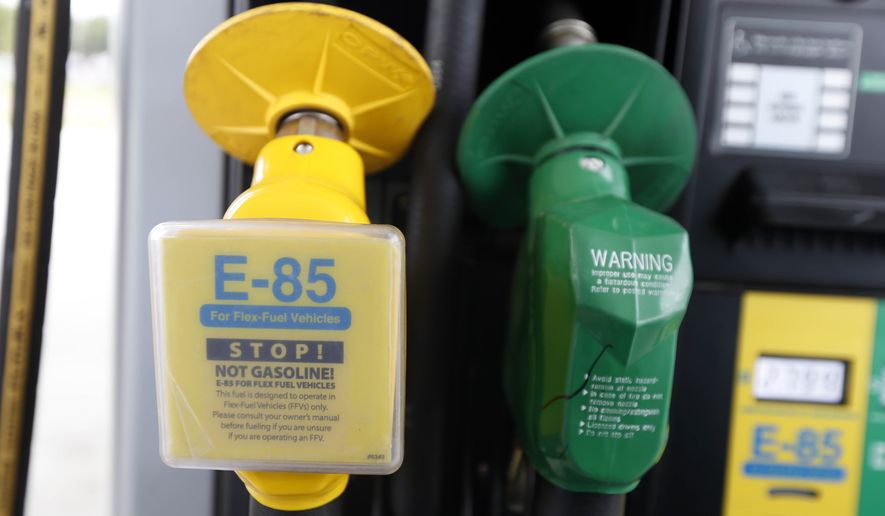In a major blow to the ethanol industry and its supporters in Congress, a bill to expand the availability of gasoline containing 15 percent ethanol has stalled in the Senate and won’t come up for a committee vote before the August recess.
The Senate Environment and Public Works Committee announced Friday morning the E15 measure, which has bipartisan support from senators across ethanol-producing states in the Midwest, lacks the votes to clear the panel and will be shelved at least until Congress returns from its summer break
The measure, which would lift federal environmental guidelines and allow E15 to be sold during the summer, has become a major flash point on Capitol Hill between pro-ethanol voices and their opponents. The federal E15 rules were initially put in place to limit ozone, which causes smog during hot months.
The committee chairman, Republican Sen. John Barrasso of Wyoming, opposes the legislation, as does Republican Sen. James Inhofe of Oklahoma, a former committee chairman and perhaps the loudest anti-ethanol voice in the chamber.
Republicans Sens. Deb Fischer of Nebraska and Chuck E. Grassley of Iowa, along with Democratic Sen. Joe Donnelly of Indiana, introduced the bill earlier this year. Each of those senators hails from a state that’s seen dramatic economic growth and job creation as a result of the ethanol industry.
Ethanol sector leaders bemoaned the delay but said the battle for E15 isn’t finished.
“We will continue to work with our bipartisan sponsors to enact this bill to provide drivers across the country cleaner fuel options year-round that are better for the environment and save Americans money every time they fill up the gas tank,” said Emily Skor, CEO of Growth Energy, which represents ethanol producers.
On the Senate floor earlier this week, Mr. Inhofe said it would be wrong to expand E15 sales before Congress addressed broader issues with the nation’s ethanol mandate, known as the Renewable Fuel Standard. The RFS requires increases amounts of ethanol to be blended with gasoline supplies each year, but actual blend amounts are consistently lower than what lawmakers envisioned when they wrote the standard in 2007.
“With all the problems with the RFS it would be irresponsible of the Congress to give them this waiver without addressing the larger issues with the program,” Mr. Inhofe said.
• Ben Wolfgang can be reached at bwolfgang@washingtontimes.com.




Please read our comment policy before commenting.